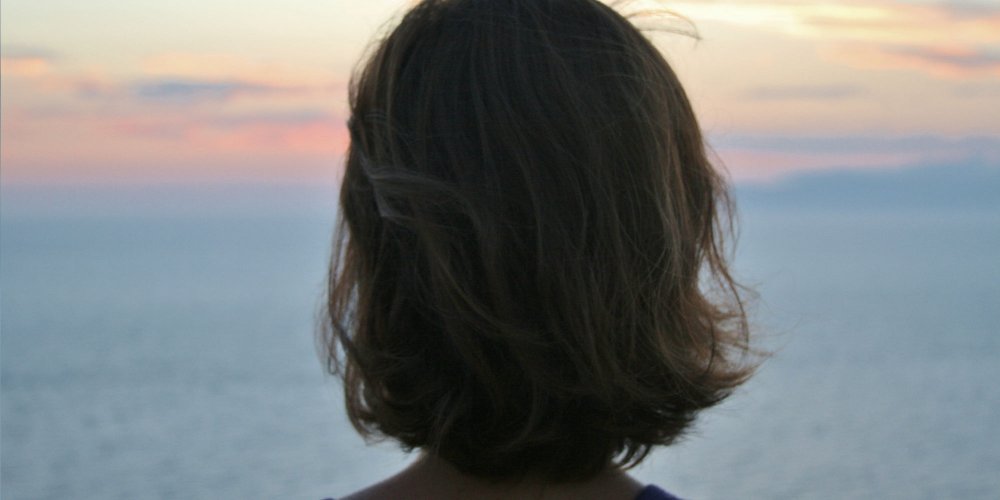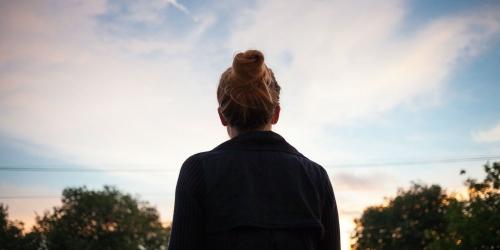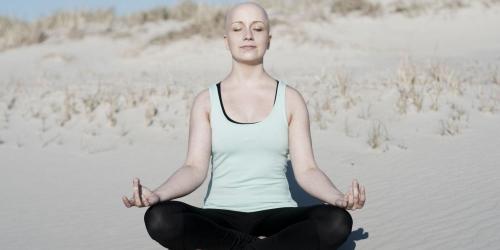"My diagnosis was totally by chance, I had made an appointment with my gynecologist for something else and since I did not have a medical record he wanted me to have a mammogram .
Three months after doing this review, I called him to find out what the report had given, but the lab had not sent him. The next two months, he asked me to do additional tests including an MRI biopsy. The person who took care of me that day then said to me, 'Do you know what you have? I do not take responsibility, it's too ugly. You have to go straight to the Institut Curie. '
So I met an oncologist who told me that I had breast cancer with three well-established tumors and that I had to have a mastectomy .
I then went on holiday in the depths of Connemara, Ireland. On site I did not have a network and when I finally recovered after three days, I saw that I had a message from my oncologist on my answering machine.
He told me that one of the exams had shown the presence of metastases. The final diagnosis was no longer even. In hindsight, I find that it was announced to me in a very bad way. Do not do it over the phone.
When I returned, I did new medical tests that actually showed metastases, but they were very localized in the back, which is a chance.
I had what is called primary metastatic breast cancer .
It was not a relapse, just breast cancer sufficiently advanced for metastases to develop.
After the mastectomy, I did chemotherapy and radiation sessions .
Breast removal, first step of a long journey
Losing a breast has not been a "real" problem for me. It's like taking a medicine, more violent of course, but it's part of the protocol.
I did not feel diminished in my woman's body. If I was sexy with two breasts, I'll always be with one, it's the same for me. I lost my hair, but I did not want wigs , it was not necessary. It was also part of the game. In addition I have a very round and very pretty skull (laughs).
I never got into this idea of telling myself I lost my femininity or my sexuality because of the disease.
Certainly, technically sex is no longer the same because of hormone therapy, but the desire is still there. He's just different. These are changes that live very well from the moment we assume them.
A cancer with which you have to learn how to compose the rest of your life
For me, metastatic breast cancer is not a test, it is a course. Today, I am doing targeted therapy with standard hormone therapy and injections every 4 weeks until I no longer benefit from this protocol.
But it's not my cancer that tells me what to do or not. Of course, there are days with and without days but it is punctual. Overall, it's me who decides.
In the minds of many people, we talk about generalized cancer and therefore end of life fairly quickly. Outside, there is a whole period between the time we are diagnosed and our end of life.
Yes, we can die of our cancer, but also die with it. He will not necessarily kill us.
We must actually support heavy, disabling, tiring treatments that prevent us from working normally. It must be realized that the disease hinders certain things. We must find another rhythm, readjust.
My life did not stop when I was told that I had cancer, or when I was told that I had metastases. It's just that I knew it was going to be another life.
"Metastatic", a remission that will never come
Once the heavy treatments are finished, we are still in treatment. I'm not healed, I'm not in remission, I'll never be. But at the same time, I'm not sick. We should find a word to describe this moment when we still have cancer cells but they are controlled.
To cope, you have to surround yourself and turn to associations of patients. It's a real support.
We do not close something when we are metastatic we open another page of our life. It can be difficult but not less happy. We always have laughs, friends around us, we always want to do things in life. It does not change. You have to hang on to that. We are always here.
Today I am 46 years old and I hope to live another 40 or 50 years. I have lots of desires, lots of things to do, lots of projects.
I do not think I would have preferred not to have this cancer. I have experienced extraordinary things, met great people, I have seen the love that my family and friends have for me. I do not regret it, it is really part of me (it is the case to say it). Today, I am very active with My Breast Cancer Network and I work in collaboration with the Pfizer laboratory to accompany other patients and it is gratifying to say that what we do can improve their lives. It makes me crazy. "




